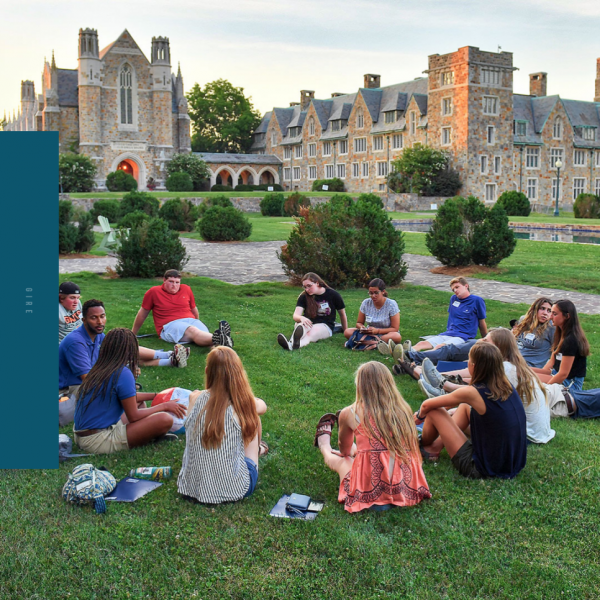|

Isn’t college admissions something you do in your senior year? Actually, the earlier you start preparing for college admissions, the better! College admissions involve years of study and preparation, including SAT/ACT, TOEFL, extracurricular activities that showcase your experiences, and essays that reflect your personal color. In your senior year, there will be so much to do that you might forget important deadlines for submitting materials and applications. Therefore, you should solidify where you want to apply by your junior year. Also, thinking about your career and setting plans and goals for college admissions from the time you enter high school can prevent you from rushing when it’s time to apply.
College Application Timeline
September to February (Junior Year) College application timelines can start as early as the fall of your sophomore year. During this period, students should meet with their college counselors to discuss their goals. Depending on the schools they hope to attend, students might need to adjust their coursework or take on new extracurricular activities. It’s also the time to start preparing for the AP exams in May and decide when to take the ACT or SAT for the first time. - Use college search engines, visit school websites, and attend college fairs. - Start narrowing down your college list. - Consider extracurricular activities, academic interests, and efforts, and think about possible majors. - Think about independent research or capstone projects that demonstrate academic excellence. - Begin planning for summer break: SAT preparation and extracurricular activities (like high school research or internships). - Register for the SAT, ACT, and AP exams.
March to May (Junior Year)
In the latter half of the 11th grade, students will take AP exams. Most students also choose to take the SAT for the first time in the spring of their junior year. Additionally, students should consider requesting recommendation letters from teachers and coaches before the school year ends, giving the writers ample time to prepare them.
- Take standardized tests like the SAT, ACT, and AP exams. - Finalize summer plans and continue important extracurricular activities related to your intended major. - Think about the majors you want to apply for and ensure your activities reflect your interests. - Start or continue independent research projects. - Ask teachers if they are willing to write recommendation letters.
June to August (Rising Senior) 12th grade is when you need a definite list of colleges to which you’ll apply. If you are not satisfied with your SAT scores or simply want to improve them, the summer before your senior year is a good time to retake the test. Generally, about 63% of students see their scores increase when they take the SAT twice, but experts usually recommend not taking the test more than two or three times. Summer is also a great time to take SAT prep courses or prepare if you want to improve your scores. Students should also create accounts on college application websites during the summer break. Most students will use the Common App, but some schools may require accounts on the Coalition or UC apps. It’s also a good idea to visit local colleges you are considering during the warm weather to get a feel for the campuses. - Relax and enjoy the summer! Reorganize your mind and focus on enhancing the activities and scores you have already prepared. - If you haven't started yet, use this time to brainstorm ideas for your personal project or capstone research project. Creating a "creative portfolio" is well worth the effort for admission to prestigious universities. - Visit the colleges on your application list to get a sense of the campus and see if it’s a good fit for you. - Prepare for the SAT/ACT retakes and focus on improving specific areas. - Start working on applications through the Common App, Coalition App, and UC Application. - Write BS/MD applications (BS/MD is a "Direct Medical Program" where students can earn a Bachelor of Science (BS) degree and then directly proceed to a Doctor of Medicine (MD) degree). - Begin working on your personal statement or application essays. - List your extracurricular activities (EC) on the Common App.
September to October In the fall of your senior year, finalize your college list and decide if you want to apply Early Decision or Early Action. ED, EA, and REA options allow students to receive admission decisions early in the application cycle. For the best results, your college list should include at least four moderately competitive (match) schools and two least competitive (likely) schools. Research each school you are considering in the fall of your senior year and take time to note important dates and deadlines. Most ED, EA, and REA deadlines are on November 1. Regular Decision deadlines for most colleges are January 1 or January 15, with a few exceptions. For instance, UC schools require materials to be submitted by November 30. Keep a calendar or spreadsheet with these dates to ensure you’re prepared. Once you’ve decided where to apply, it’s time to start filling out applications. During this period, work on your Common App Essay and any required supplemental essays. After completing your essays, take the time to get feedback from trusted sources such as parents, tutors, or teachers. Because each college has different prompts, it’s a good idea to prepare multiple essay drafts. Also, use this time to gather additional documents and information needed for your applications. Request SAT scores and ensure your recommenders haven't forgotten to write your letters of recommendation. - Continue working on college applications. - Finalize your college listing. - Register for college interviews if available. - Apply for Early Action or Early Decision. - Request transcripts from your counselor. - Follow up with teachers who agreed to write recommendation letters. - Continue with extracurricular activities and personal projects. - Keep working hard! Remember that first-semester senior year grades also count.
November to December (Senior Year) - Continue working on Regular Decision applications. - Register and prepare for college interviews if available. - Apply to some colleges as soon as applications open through Rolling Admission. - Decide on your top-choice school and apply for Early Action, Restrictive Early Action, or Early Decision if eligible. - Request transcripts from your counselor. - Follow up one last time with teachers about recommendation letters and send thank-you notes once they’ve submitted them.
January (Senior Year) - Submit Regular Decision applications. - Decide whether to apply for Early Decision 2 (ED2). This application is submitted at the same time as RD applications. - Ensure all transcripts have been requested and sent. - Continue with interviews. - Start searching for scholarship opportunities.
February to April (Senior Year) - ED2 admission decisions (Binding) are typically released in early to mid-February. - Continue with personal projects or capstone research projects. - Most colleges release admissions decisions between March and April. - Attend Student Days at colleges you have been accepted to and are seriously considering.
May to June (Senior Year) In the spring of 12th grade, students will receive acceptance and rejection letters from Regular Decision colleges. If waitlisted at a particular school, some students send letters of continued interest to that college. After reviewing all acceptances and financial aid offers, make your final decision and submit your deposit. - Decide on the college you will attend. - If waitlisted at a top-choice school, send a letter of continued interest. - Submit housing deposits and any other necessary paperwork to complete your enrollment. - Graduate from high school.
July to August - Prepare for college! Use this time to determine your move-in date and attend required orientations. - Start thinking about your class schedule. Some colleges require you to choose subjects before entering.
August to September - Move into your college dorm. - Attend orientation and start your college life.
It’s important to remember that the timeline listed above may not be suitable for every student. However, planning ahead and giving yourself ample time and opportunity to succeed is the optimal schedule. Following this timeline can allow you to complete the college admissions process satisfactorily without rushing. While the process is complex and not easy, trying to enjoy the moment will undoubtedly lead to positive outcomes naturally. |
 Click here to book
Click here to book